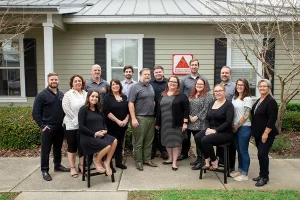Insurer Who Sues Insured for Fraud Without Evidence Should be Punished

Post 5039
See the full video at https://rumble.com/v6rlky1-insurer-who-sues-insured-for-fraud-without-evidence-should-be-punished.html and at https://youtu.be/R21dPn2pLSE
Lack of Evidence Accusing Insured of Fraud Exposes Insurer to Punitive Damages
In Shalz Construction LLC, a Colorado limited liability company; and Bradley Shalz, individually v. Great Lakes Insurance, SE f/k/a Great Lakes Reinsurance UK PLC, a foreign corporation, Civil Action No. 22-cv-03005-NYW-NRN, United States District Court, D. Colorado (March 31, 2025) the Court was asked by Plaintiffs Shalz Construction, LLC and Bradley Shalz’s (collectively, “Plaintiffs” or “Shalz”) for Leave to Amend to Seek Exemplary Damages (“Motion to Amend”).
Background
The case has a complicated history, originating from third-party claims that Great Lakes asserted against Shalz in an earlier lawsuit involving Pinon Sun Condominium Association, Inc. Great Lakes alleged that Shalz conspired with Pinon Sun to commit insurance fraud by submitting inflated estimates for roofing repairs.
Legal Proceedings
Judge Christine M. Arguello dismissed the racketeering claims against Shalz and later entered summary judgment in Shalz’s favor on all remaining claims. The court concluded that Great Lakes had relied on its own contractors’ estimates rather than any information provided by Shalz.
Current Lawsuit
Shalz sued Great Lakes for malicious prosecution, claiming actual out-of-pocket damages of approximately $200,000 and seeking damages for lost profits, business opportunities, and damage to their reputation, estimated at approximately $3 million.
Motion to Amend
Shalz asserted that Great Lakes acted with fraud, malice, or willful and wanton conduct in bringing the conspiracy and fraud claims against Shalz, justifying a jury awarding exemplary damages.
Legal Standard
Under Colorado law, exemplary damages are appropriate in civil actions where the injury is attended by circumstances of fraud, malice, or willful and wanton conduct.
ANALYSIS
Plaintiffs have provided evidence that Great Lakes pursued the lawsuit against Shalz maliciously and with evil intent, primarily to exert settlement pressure. Therefore, the Court granted Plaintiffs’ Motion for Leave to Amend to Seek Exemplary Damages.
Legal Standard For Allowing Exemplary Damages Under Colorado Law
A claim for exemplary damages under Colorado law is appropriate in all civil actions in which damages are assessed by a jury for a wrong done to a person or to personal or real property, where the injury complained of is attended by circumstances of fraud, malice, or willful and wanton conduct.
Willful and wanton conduct is defined as conduct purposefully committed which the actor must have realized as dangerous, done heedlessly and recklessly, without regard to consequences, or of the rights and safety of others, particularly the plaintiff.
The statutory requirements are met where the defendant is conscious of his conduct and the existing conditions and knew or should have known that injury would result. Exemplary damages are intended to punish and penalize a defendant for certain wrongful and aggravated conduct and to serve as a warning to other possible offenders
CONCLUSION
Great Lakes brought claims against Shalz for which Great Lakes could not even muster any non-speculative allegations or utterly failed to provide any evidence of, for example, reliance or damages.Plaintiffs brought forward prima facie evidence that Great Lakes sued Shalz for fraud, civil theft with the knowledge that there was little to no support for those claims because Great Lakes had never relied on or been damaged by the alleged conduct.
Plaintiffs’ Motion for Leave to Amend to Seek Exemplary Damages was GRANTED.
Insurance fraud is both a crime and a tort. If an insured commits fraud any claim owed under an insurance policy becomes void and noncollectable. However, accusing an insured of fraud without evidence is wrongful and can take what an insurer thought was a good defense to a claim into an obvious loss and provide the insured with the ability to punish the insurer. Great Lakes learned that its suit against Shalz for fraud and civil theft with the knowledge that there was little to no support for those claims because Great Lakes had never relied on or been damaged by the alleged conduct, the court allowed the plaintiffs to amend their suit to include a claim seeking exemplary damages.
 (c) 2025 Barry Zalma & ClaimSchool, Inc.
(c) 2025 Barry Zalma & ClaimSchool, Inc.
Please tell your friends and colleagues about this blog and the videos and let them subscribe to the blog and the videos.
Subscribe to my substack at https://barryzalma.substack.com/subscribe
Go to X @bzalma; Go to Newsbreak.com https://www.newsbreak.com/@c/1653419?s=01; Go to Barry Zalma videos at Rumble.com at https://rumble.com/account/content?type=all; Go to Barry Zalma on YouTube- https://www.youtube.com/channel/UCysiZklEtxZsSF9DfC0Expg
Go to the Insurance Claims Library – https://lnkd.in/gwEYk
Like this:
Loading…
Related
About Barry Zalma
An insurance coverage and claims handling author, consultant and expert witness with more than 48 years of practical and court room experience.



